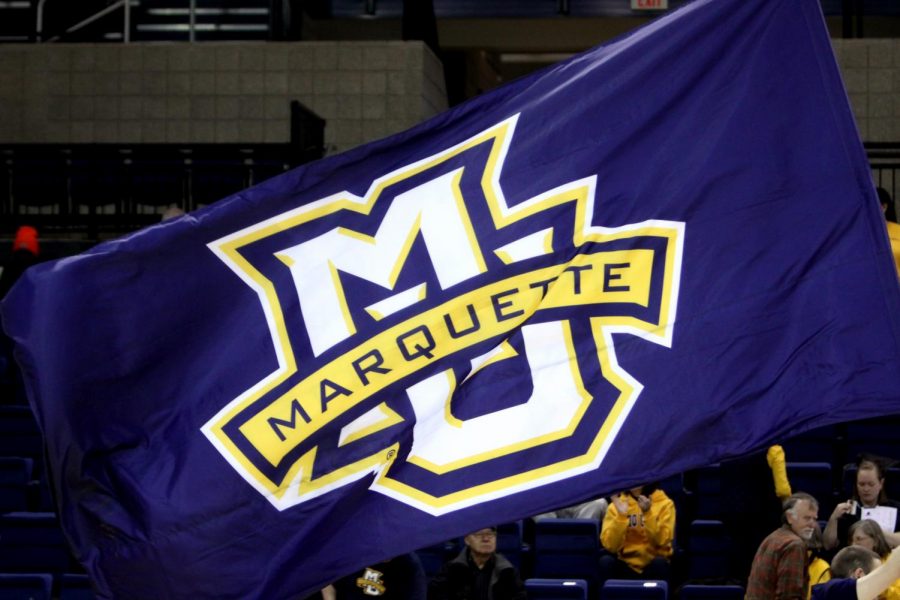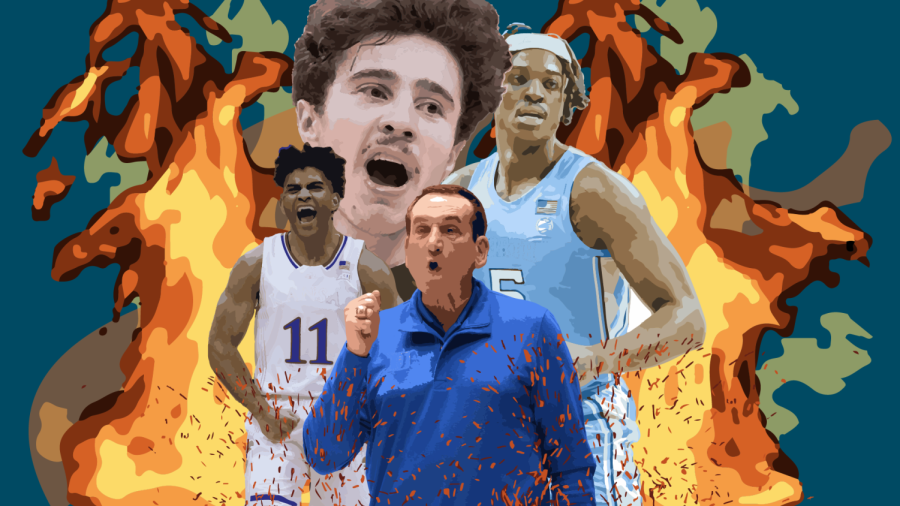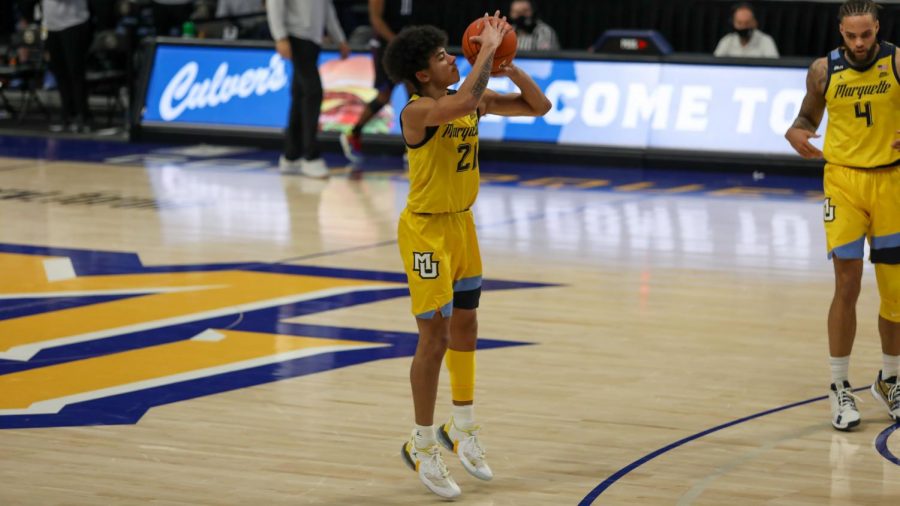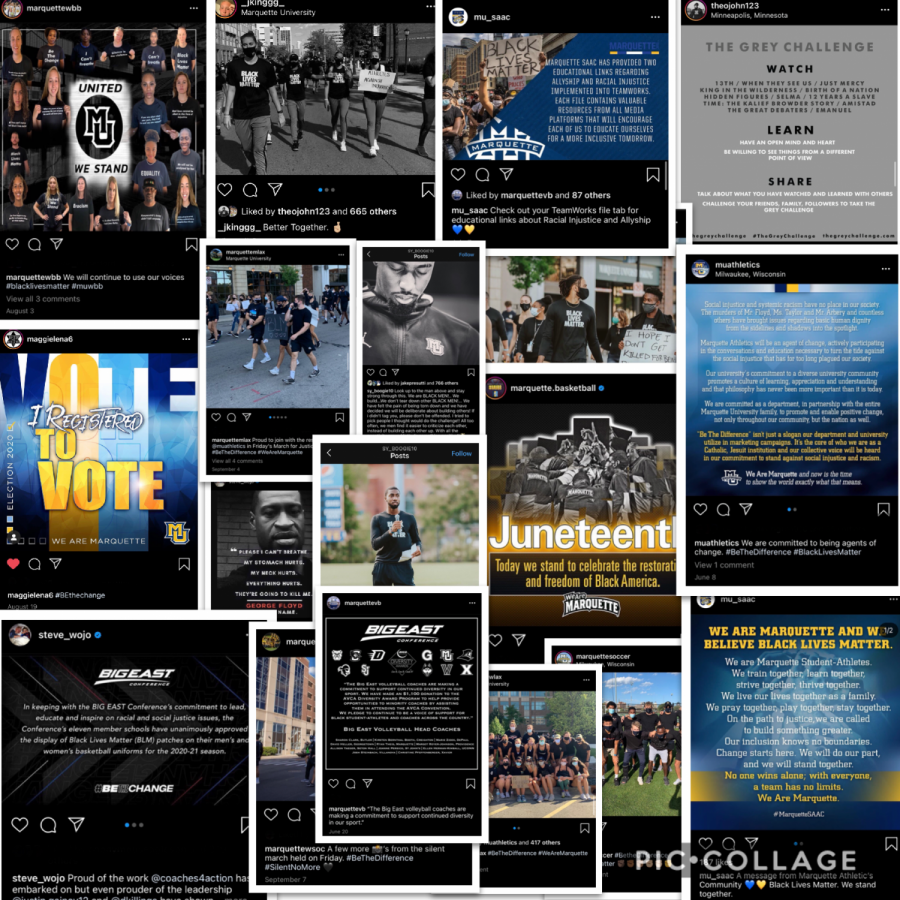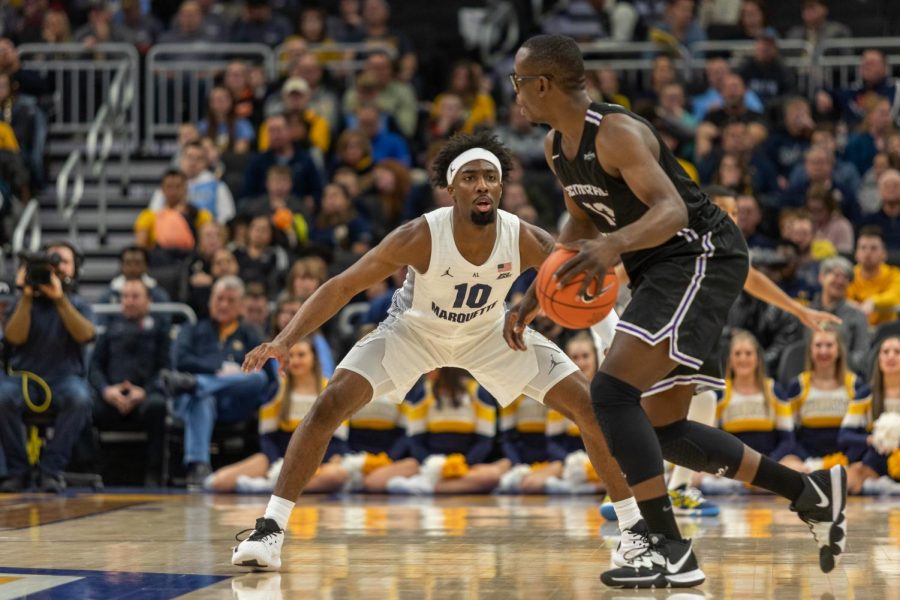
On Monday afternoon, Tribune Sports Editor Patrick Leary and MUTV Sports Director Michael Cianciolo sat down with NCAA president Mark Emmert. Emmert discussed his reasons for coming to Marquette, his day-to-day role as NCAA President, conference realignment and the pay-for-play controversy.
Marquette Student Media: Why did you decide to make the trip to Marquette and what do you hope to gain from coming?
Mark Emmert: I’d been invited some time ago to come here to the law school to speak at your policy forum and I was delighted to have that opportunity. Whenever I go to a campus I want to make sure I spend time with students, get an opportunity to interact with them and do a Q-and-A with them. And so I’m going to spend time both with your athletic department and athletes, with your law students and, of course, with you guys.
MSM: Can you take us a through an average day as the NCAA president and touch on some things that people might not know the NCAA president does?
ME: Well, I’m not sure there’s anything like an average day. I travel an awful lot, so I’m out of the office almost two-thirds of the time it seems, going out on campuses visiting with students, visiting with coaches and administrators around the country. Actually, a typical day would be doing something not unlike what we’re doing here.
When I’m in Indianapolis, then I’m working with all of our staff and all of the members that come in to Indianapolis for meetings. We have presidents and ADs and coaches and faculty reps and student athletes all coming into Indianapolis for various things. It would typically entail a lot of meetings with our staff, a lot of meetings that come into the room talking about the big policy questions that face the whole collegiate athletic experience and then trying to get as much time as I can with students, which is the hardest part.
MSM: Recently, the Big East underwent a lot of change and restructuring and the American Athletic Conference was formed. Can you talk about the impact of that on the entire college sports landscape?
ME: Obviously, it was a pretty dramatic set of shifts and it focused a lot of our attention for much of this last year. The NCAA is, as your well aware, a voluntary association of about 1,100 schools and about 450,000 student athletes across all three divisions. So we govern all of the sports that are conducted and all of those championships. But one thing we don’t have control over, and the membership has never wanted the association to worry about, is conference membership. Those decisions are completely up to the individual universities that make up a conference and then schools themselves as to which conference they want to join and where they want to be. So we didn’t have a lot of a role in all that, but it was very interesting to watch it. My role was predominantly to remind people that they needed to be thoughtful about what this meant for student athletes and what it meant for the broader game.
It left the landscape quite a bit different. Obviously, we lost some traditional rivalries and we gained some that 10, 20 years from now will be considered new rivalries, I’m sure. It was predominantly realignment around media rights, especially around football. That was the big driver for the five major conferences. I think we’ve largely seen the end of that. There might be a little bit of movement, but I don’t think we’ll have very much from here on in.
MSM: Do you see an endgame to conference realignment where schools say we’re good where we are and we don’t have to move ever again?
ME: Well, ever is a long, long time, so let’s say for ten years or so. I think we’re pretty close to that now. There could be one or two schools that move around at the highest levels of Division I. There’s still going to be some sorting out among smaller conferences because there’s some domino effect going on there and there might even be some in other parts of Division I around FCS football, but mostly its pretty well settled down at the top, and that’s a good thing. Now conferences have always changed and there’s always been movement, so I would expect over the next five or ten years there would be some more bouncing around, but I think the big moves are done for now.
MSM: Relating to the Scott Monarch firing and Buzz Williams suspension, what precedence does the NCAA hold over all forms of recruiting violations? How do you feel about programs self-imposing discipline?
First of all, let me describe the way those decisions are made. When people think about the NCAA they often think about the president, Mark Emmert, and think I play a role like Roger Goodell in the NFL. Nothing’s further from the truth. If you think about my job, you need to think more like Secretary General of the United Nations, more like Ban-Ki Moon than Roger Goodell. All of those decisions, like those penalties you are referring too, those are all decided upon by a committee called a committed on infractions that’s made up of member across all of the country. That committee has commissioners and athletic director and faculty reps and citizen lawyers on it, so it’s a bit of jury of your peers. When they have a case come before them they look at all of our rules that are potentially violated. We cover recruiting in a complex set of rules, I believe an overly complex set of rules, and those rules govern a variety of ways in which schools can and cannot interact with student athletes. The whole idea is to make sure that the process is fair, that there’s not underhanded dealing between recruits and boosters and others, and that student athletes aren’t taken advantage of. That’s evolved over the past 40 years or so to be this very thick complicated rulebook covering recruitment. We have an investigative team that if there’s allegations that something went wrong they’ll go out and conduct investigations. They take all that information and they give it to the committee on infractions, this independent body, then they pass judgment on it. When they’re making their decision, the look at the self-imposed penalties. They saw OK, what did this university do? Did they recognize that mistakes were made? Did they put in place systems to prevent that from happening in the future? Did they take serious steps to mitigate those wrongs? If they did, they certainly take that into consideration when there deciding if there’s going to be any more penalties.
MSM: The NCAA recently stopped the selling of collegiate athletic jerseys from their online store. Can you talk about the thinking behind that move and why the NCAA made that move when they did?
ME: I was the one that made the decision so, yeah, I can talk a lot about it. The NCAA.com store is simply an online store that was an aggregator of jersey sales that occur at individual schools. If you wanted to buy a Marquette jersey you could go to NCAA.com and buy it at NCAA.com but it was really, behind the scenes, a sale with Marquette. You could, I assume, go online today to Marquette’s website and buy that same jersey right now. It was really a convenience the NCAA was offering through NCAA.com. Because of the controversy around being able to go online and look at a name and have a specific jersey and number come up, I deemed that that was an inappropriate thing for us to be doing. We don’t want and its in fact against our rules to have somebody selling a student athlete’s name. So our system, quite inadvertently, nobody had really planned it, we have independent parties that put all these things together, we don’t do it, but that doesn’t mean were not responsible. When we realized that was going on, we immediately shut it down and I said just take that part offline. We don’t really have any business being in the business of selling jerseys for Marquette or any other school. So were only now selling products online that involve our championships or events that we have control over that are part of the NCAA as a whole, not individual schools.
MSM: There are many people that say schools are doing enough for athletes by providing them with campus housing and an education, but there are equally as many people that feel that is not enough. Can you explain your view on the pay-for-play debate?
ME: Well I’m adamantly opposed to pay-for-play if, by that you mean a system that converts student-athletes into employees of universities or colleges. Today, under the rules that the member have decided on, a full athletic scholarship provides tuition fees, room and board, books and supplies. That’s a pretty good deal obviously for all of you paying for those things. But on the other and, that model has been in place for about 40 years. During that 40 years, almost everything has changed in college sports and in life in general. So the piece that’s in active debate among the members, not among the sports columnists and opinion writers but among the member universities themselves, is should that scholarship model be expanded to cover, what in higher education parlance is called, the full cost of attendance, what it really costs to be a student. You all know as students, you have tuition fees, room and board, books and supplies, but you also have miscellaneous expenses like transportation money to go to and from home, you need clothes once in a while, you need laundry money, you need meals on weekends, you have all of those additional costs. That number, that miscellaneous expense number, varies from school to school. It averages around $3,000 per student at most universities. Probably something like that or a little more here at Marquette because you’re in the city. So the debate right now is can you provide a little more in the scholarship that covers the real cost of being a student. Full-time Division I athletes right now, they’re working a lot harder than they did 40 years ago. They’re putting in 30 or 40 hours as a student and an athlete. We’ve raised the academic demand, we’ve raised the amount of time it takes to be a successful D-1 athlete and so the notion is they don’t have time for part-time jobs anymore, they don’t have time to worry abut and cover that miscellaneous expense. Should universities be allowed to fill that two or three thousand dollar gap? The Division I board has twice said yes they should be able to, they’ve passed it twice. It was shot down by the full membership because all 350 Division I schools can vote on these things and they voted on it and the voted it down. But I think we haven’t seen the end of that. I think many people want to revisit it and so we’ll probably see it back in debate in the next few months.
MSM: With the ever-changing landscape of college athletics, what do you see as the role of the NCAA five to ten years from now?
ME: The NCAA for more than 100 years now has been the only organization that’s in a position to do three things. The first is they have the interest of student athletes first and foremost as their focus, making sure that the health and welfare and well being is preeminent. That’s why it was formed 100 years ago, that remains the core of its mission today and were expending that also to make sure it’s about the success of student athletes. We want them to be successful in the classroom, in life and on the court. The association exists to pass rules that try and enforce and ensure that will be the case. The second piece is that we run 89 championships. No other body can run National Championships. We run 89 national championships across every sport in all three divisions. We do that extremely well. We’re really proud of those things. Students love participating in championships. For almost every athlete, getting to an NCAA championship is the goal and we run that and we love doing that. The third piece is this special mission to oversee the integrity of all of college sport. The NCAA as a whole and all of the members come together and say here’s the things that we’ll accept as appropriate behavior and here’s the things that are inappropriate behavior. The NCAA has the responsibility to make sure that integrity in the games and institutions is maintained. Those three things I don’t think are going to change much at all. How some of those things get done well constantly be evolving. How they’re financed and what the membership is will always be changing, but that core mission is not going to change I’m sure.

